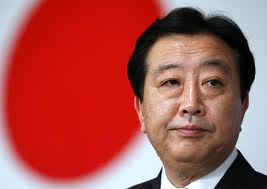Japan finds way to prosperity via tax rate increase – Part 1
Tuesday, January 24th, 2012 6:19:56 by Usman Khalid
Japan’s government said it will probably miss its goal of balancing the budget by 2020 even with its proposed doubling of the sales tax, underscoring the scale of the nation’s fiscal challenges.
The primary budget deficit, which excludes the cost of servicing debt, will be the equivalent of 3.1 percent of gross domestic product for the year through March 2021, the Cabinet Office said in Tokyo today. Hours after the release, Prime Minister Yoshihiko Noda reiterated his call for opposition lawmakers to engage in talks on boosting the sales levy.
Addressing the shortfall through faster growth may be a limited option for Japan, where the central bank has already cut the key interest rate near zero and the traditional boost from a trade surplus last year evaporated — for the first time since 1980. Absent structural changes that boost incentives to spend and invest, today’s report signals further fiscal tightening will be needed to rein in the world’s largest public debt.
“To balance the budget, the rate needs to rise further,” said Takuji Okubo, chief Japan economist at Societe Generale SA in Tokyo, referring to the sales-tax level. “We’ve passed the point where we can soft-land the fiscal situation. The question is how hard the landing is going to be.”
The Cabinet Office release assumed average growth of 1 percent annually over the period through the 2020 fiscal year. The Bank of Japan today cut its projection for gross domestic product for the year starting April 1 to 2 percent from an October estimate of 2.2 percent.
“Japan’s economic activity has been more or less flat, mainly due to the effects of a slowdown in overseas economies and the appreciation of the yen,” the BOJ said. “Growth prospects for fiscal 2012 and 2013 will likely remain broadly unchanged because the economy is expected to gradually return to a moderate recovery path,” it said.
Europe’s debt crisis has both hampered Japanese exports and contributed to a strengthening in the yen, which has benefited from investor risk aversion because of Japan’s status as the world’s largest net creditor — a legacy of past trade surpluses. The currency has climbed about 17 percent versus the dollar in the past two years, undermining earnings from shipments abroad.
Tags: finanacial crisis, increase rate, japan, Prime Minister, tax rateShort URL: https://www.newspakistan.pk/?p=10349

















